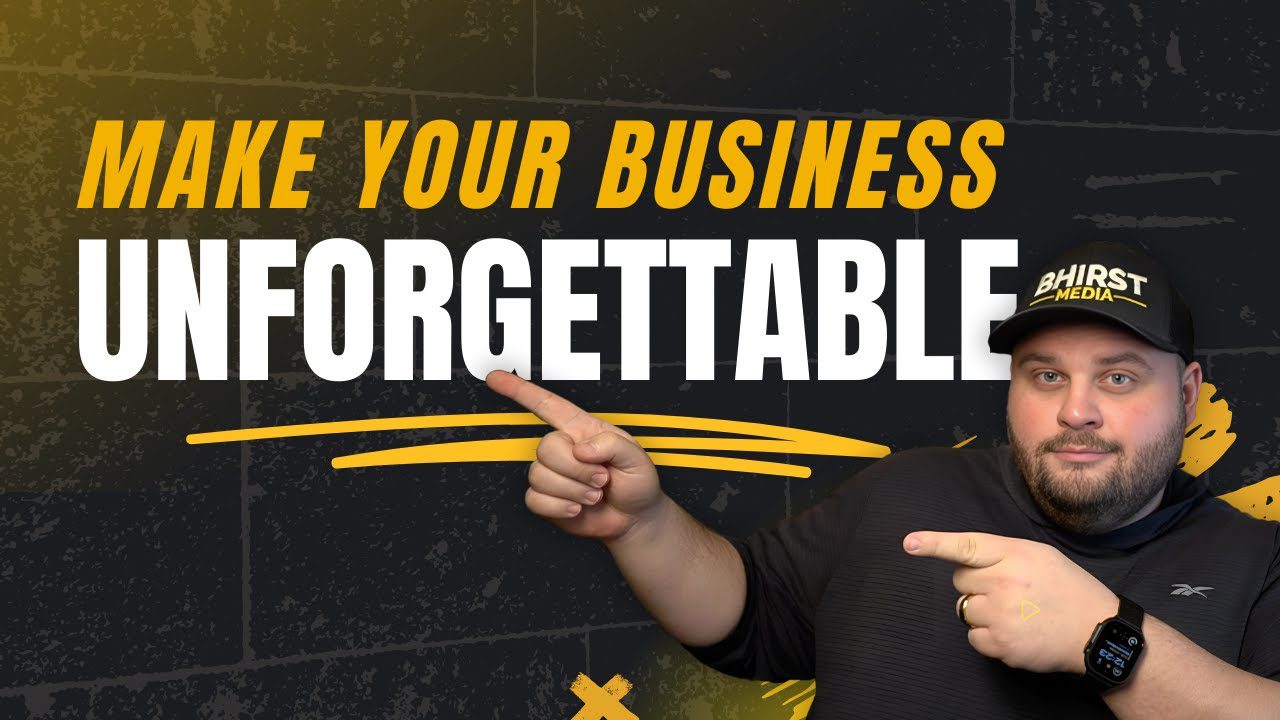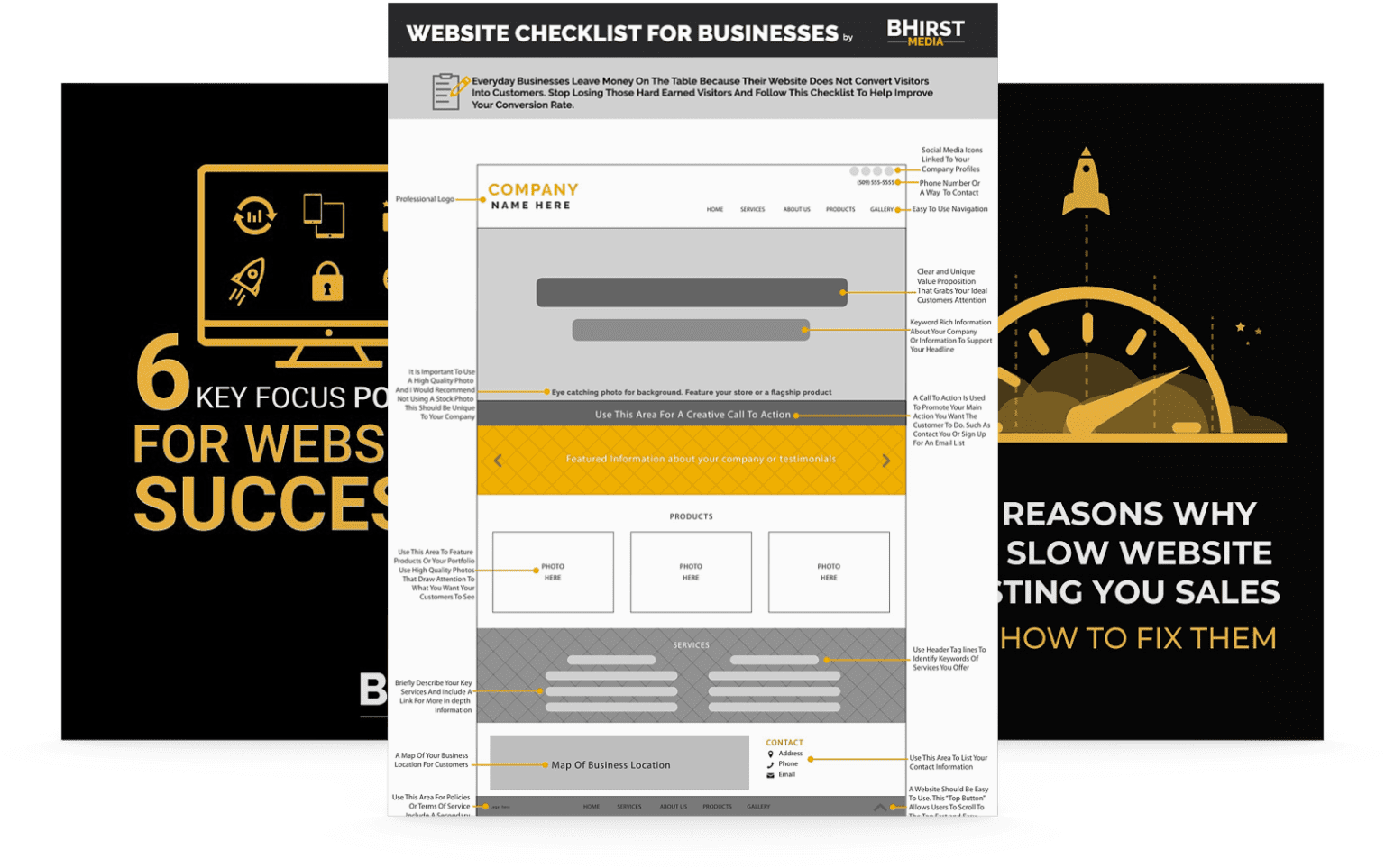
Standing out in competitive markets requires more than just clever marketing—it demands strategic differentiation and innovation. Below are seven key strategies to help you build sustainable, uncopyable advantages for your business.
Your customers have dozens of options just a click away. So why should they choose YOU?
In today’s competitive market, standing out isn’t just nice to have—it’s essential for survival. Unless you’re selling something literally no one else on Earth offers (which is incredibly rare), your ideal customers have to make a choice between you and your competitors.
When business owners are asked what makes them different, the most common answer is: “We provide the best customer service.”
While that sounds good, it’s unfortunately about as generic as it gets. Almost EVERY business claims to offer great service. It’s like saying your restaurant serves food or your store sells products—it’s expected!
Another common differentiation attempt is competing on price. As you look around, you’ll see “lowest price” and “best price” claims everywhere. But is this really the best strategy?
The hard truth is that competing on price alone is a race to the bottom. The lower your prices go, the smaller your margins. Even worse, being the cheapest in your marketplace can actually hurt you because customers might assume your product or service is lower quality.
So if generic service claims and competing on price aren’t the answer, what is?
Let’s break down seven proven strategies that can truly differentiate your business and create lasting customer loyalty.

I know, I just said claiming “great service” is generic. But there’s a massive difference between claiming great service and actually providing an experience your customers can’t find anywhere else.
What does exceptional service actually look like?
For example, a local coffee shop that remembers not just regular customers’ names but their usual orders. They’ve been known to send handwritten birthday cards to loyal customers. That’s exceptional service that creates stories customers tell others.
The key is to define exactly what exceptional service means for YOUR business, then execute it consistently every single day.
This strategy is powerful because so few businesses do it well. Be brutally honest with your customers—even when it’s uncomfortable.
This means:
For instance, if your product isn’t the right fit for a potential customer, tell them so and recommend a competitor who might serve them better. It seems counterintuitive, but that level of honesty creates such deep trust that those same people will often refer others to you, even if they don’t become customers themselves.
When you make a mistake (and we all do), own it immediately. Your customers will appreciate your honesty far more than any excuse you could offer.
You only have a few seconds to make a first impression. Make sure your branding stands out and speaks directly to your target audience.
This isn’t just about having a nice logo. It’s about creating a consistent visual and messaging identity that instantly communicates your values and personality. Your branding should tell customers what you stand for before you ever say a word.
Notice I said “distinctive” branding—not necessarily the most beautiful or expensive. The key is that it’s memorable and authentically represents who you are as a business.
Think about brands you instantly recognize. What makes them stick in your mind? How can you create that same recognition for your business?
When customers search for solutions you provide, you need to be front and center. This means:
If potential customers can’t find you online, they’re going to click on your competitor instead.
Customers expect consistent experiences whether they’re on your website, social media, or talking to you in person. Make sure all these touchpoints reflect the same values and messaging.
What specific expertise or insights can you share online that showcase your knowledge while providing genuine value? This type of content marketing helps establish you as an authority and differentiates you from competitors who are just selling.
Reward your loyal customers for sticking with you. But don’t just copy what everyone else is doing—create a program that reflects your unique brand and offers genuine value.
The most effective loyalty programs don’t just offer discounts—they create experiences and benefits that customers can’t get elsewhere. For example:
Think about it—which loyalty programs do YOU actually use? What makes them valuable to you? Apply those insights to your own program.
Stand behind your products or services with guarantees that actually mean something to your customers. This reduces their perceived risk in choosing you over competitors.
Don’t just offer the standard “satisfaction guaranteed” that everyone claims. Get specific about what customers can expect and what happens if those expectations aren’t met.
For example:
By offering guarantees that your competitors don’t, you signal confidence in your work and make the customer’s decision easier. The key is that your guarantee needs to address a real concern your customers have.
Support initiatives that align with your values and resonate with your customers. This could be local community involvement or global initiatives like sustainability.
More and more consumers are choosing to support businesses that share their values. They want to feel good about where they spend their money.
The key here is authenticity. Don’t just jump on whatever cause is trending. Choose something that genuinely connects to your business and values, then commit to it consistently.
For example:
Your customers can spot insincerity from a mile away. Make sure your purpose is something you and your team genuinely care about.

Now that we’ve covered seven powerful ways to stand out, let’s talk about how to actually implement these in your business.
Start by honestly evaluating where you stand right now:
Don’t just guess at these answers. Talk to your customers directly or send out a survey. Their perception of what makes you different might surprise you.
While you might implement several of the strategies we’ve discussed, focus on 2-3 that you can truly excel at and that align with your brand values.
Remember, trying to be everything to everyone usually results in standing out to no one. It’s better to be known for doing a few things exceptionally well than many things adequately.
Choose differentiators that:
Don’t leave your differentiators as vague concepts. Define exactly what they look like in practice and how you’ll measure success.
For example, if “exceptional customer service” is a differentiator, specify what that means:
The more specific you are, the easier it will be to train your team and consistently deliver on your promises.
Once you’ve defined what makes you different, make sure your customers know about it! Weave your differentiators into your:
Remember, it’s not enough to be different—you need to make sure your customers understand and value those differences. The most successful differentiation strategies become part of your brand story. They should be evident in every customer interaction, not just mentioned occasionally in marketing materials.
In a marketplace where customers have endless options, being different isn’t just nice to have—it’s essential for survival.
The businesses that thrive aren’t necessarily the biggest or the cheapest—they’re the ones that create experiences and value their competitors simply can’t match.
So let me ask you: What will YOUR customers say makes you different a year from now?
Start implementing these strategies today, and I guarantee they’ll have an impressive answer.
